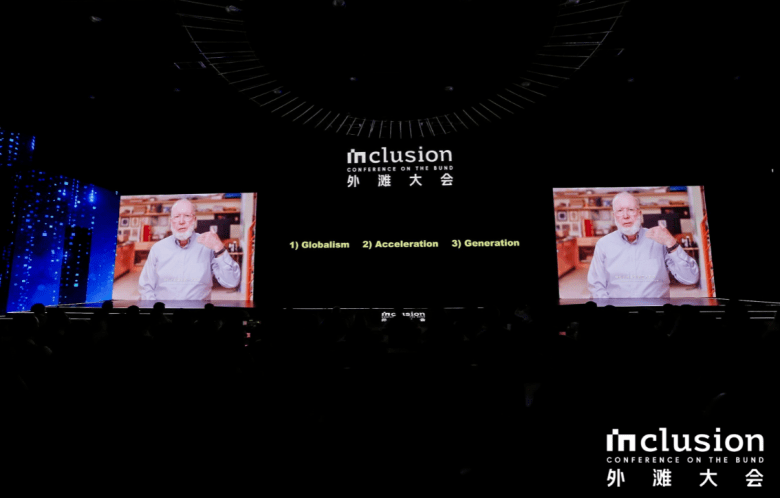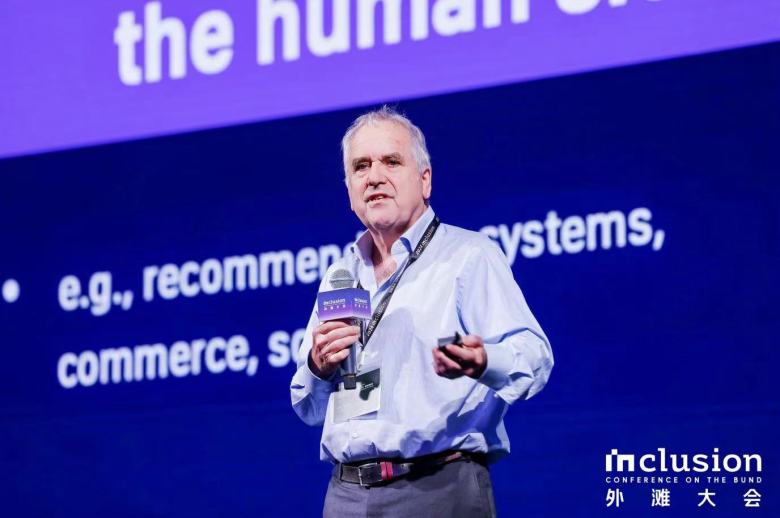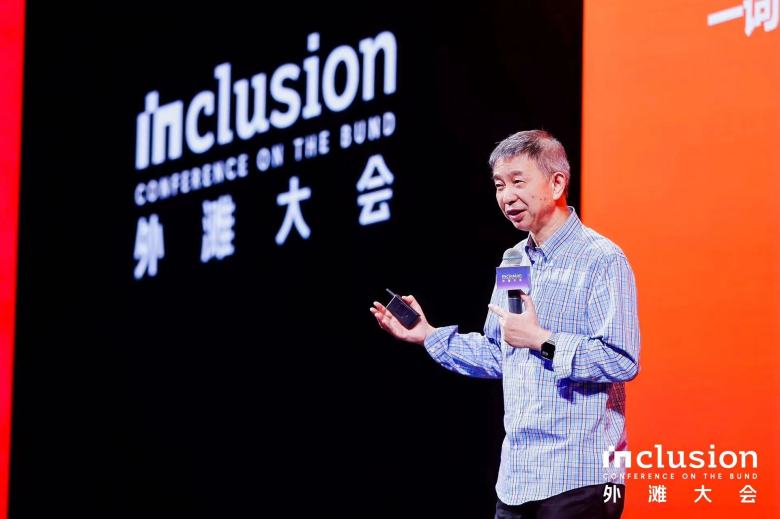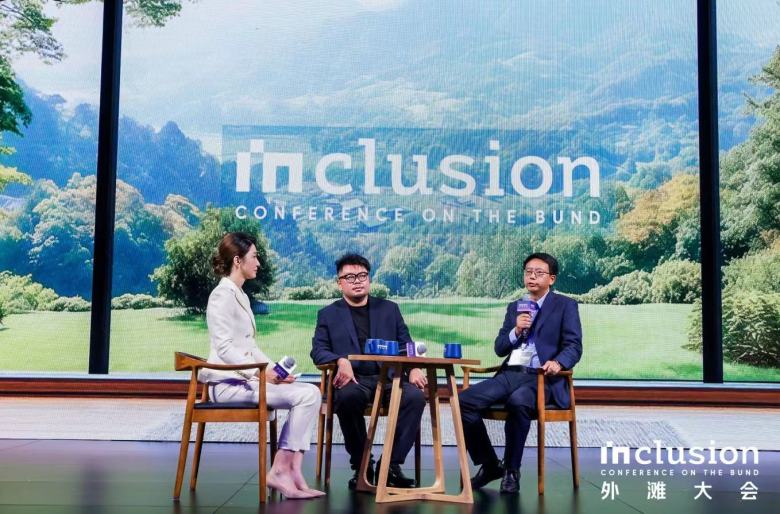The 2024 INCLUSION·Conference on the Bund, themed “Technology for a Sustainable Future,” opened in Shanghai on Thursday. The three-day event is dedicated to building a platform that promotes international exchange and the integration of technology and culture, and seeks to explore responsible innovation in the context of global sustainable development.
At the opening main forum, the conference invited three distinguished guests: Kevin Kelly, the founding executive editor of Wired magazine; Michael Jordan, a member of the US National Academy of Sciences and the US National Academy of Engineering; and Wang Jian, an academician at the Chinese Academy of Engineering and the founder of Alibaba Cloud. They delivered keynote speeches on preparing for the new technological revolution.

Three major trends in AI: globalism, accelerated innovation, and AI-driven creation
The first keynote speaker, Kevin Kelly, shared his insights on the AI era, highlighting three major trends: globalism, accelerated innovation, and AI-driven creation. Kelly stated that globalism is advancing rapidly as technology connects devices worldwide into a massive, organic-like system, fostering a new global culture. AI is breaking language barriers with real-time translation and transforming international work, he noted.
AI accelerates innovation by speeding up the dissemination of new ideas and improving learning through AR and VR technologies, according to Kelly. Tools like ChatGPT are significantly enhancing how quickly people learn, emphasizing the importance of “learning how to learn” as a crucial skill for young people, who will work in jobs that don’t yet exist, he said.
AI-driven creation, according to Kelly, represents a revolutionary shift where AI not only handles mundane tasks but also generates novel, unimaginable things. He highlighted that AI benefits a wide range of individuals, not just the most intelligent, by enabling better work outcomes.

Collectivity, uncertainty management, and incentives in AI
The second keynote speaker, Michael Jordan, discussed three critical yet often overlooked aspects of AI: collectivity, uncertainty, and incentive mechanisms. He mentioned the need for AI systems to foster collective intelligence, similar to human collaboration, to better handle uncertainty. Jordan pointed out that current AI systems struggle to express their knowledge and certainty levels, unlike humans who excel in collaborative uncertainty management.
Jordan also discussed the importance of incorporating economic perspectives into AI design, suggesting the need for incentive structures to drive AI agents toward valuable contributions. He introduced the “Three-Layer Data Markets” model, where users, platforms, and data buyers interact through data exchanges and services, underscoring the role of incentive mechanisms in creating value.
Drawing from statistical contract theory, Jordan stressed the necessity of aligning AI development with human welfare and warned against simplistic visions that distort AI’s potential.

AI+ and infrastructure: transformative synergy of data, models, and cloud computing
Wang Jian provided his perspectives on AI, AI+, and AI infrastructure. “AI+ is not merely combining AI with industry but a synergy of data, models, and computing power, with cloud computing as the AI era’s infrastructure,” he said.
Wang reviewed AI’s development, noting its long conceptual but short practical history, marked by Google’s 2017 Transformer model. He cited diverse applications like ChatGPT, AlphaFold, and weather forecasting, all relying on the Transformer model, which revolutionized AI. ChatGPT should be viewed as a platform, with GPT as the foundational model and Chat as a specific application, illustrating the transformative nature of combining these technologies, he argued.
AI+ involves innovative mechanisms, specifically integrating data, models, and computing power, according to Wang. He likened AI infrastructure to foundational technologies with long-term human impact, citing cloud computing as essential for the AI era. “The simultaneous revolutions in technology, mechanisms, and infrastructure are creating an exciting future,” Wang concluded.

AI evolution, human-machine harmony, and ethical challenges
At the end of the opening ceremony, 24-year-old Zhou Jian, a one-armed piano player, performed using a smart bionic hand. Following this performance, Professor Xiao Yanghua from the School of Computer Science and Technology at Fudan University engaged in a discussion with Han Bicheng, the CEO of Zhejiang BrainCo Technology, about the future of human-machine harmony.
As AI and brain-computer interfaces become more prevalent, machines are becoming an extension of human capabilities, fundamentally altering our understanding of humanity, Xiao Yanghua asserted. AI could transform individuals into “superhumans” by enhancing human abilities through technology, which will also reshape social relationships and societal structures, he added.
Han Bicheng discussed the expected evolution of brain-computer interface technology over the next 5 to 10 years, detailing three stages: repair, enhancement, and advanced interaction. Initially, the technology will focus on repairing disabilities, then on enhancing functions for the elderly, and eventually on more advanced forms of communication beyond language.
Both speakers agreed that while new technologies offer tremendous possibilities, they also raise significant ethical concerns. Xiao identified four major challenges: adapting social structures to rapid technological advances, ensuring equitable access to technology, preventing technological addiction, and safeguarding human values. Xiao pushed for proactive technology governance, while Han stressed the importance of AI ethics committees and focusing on helping those in greatest need.

